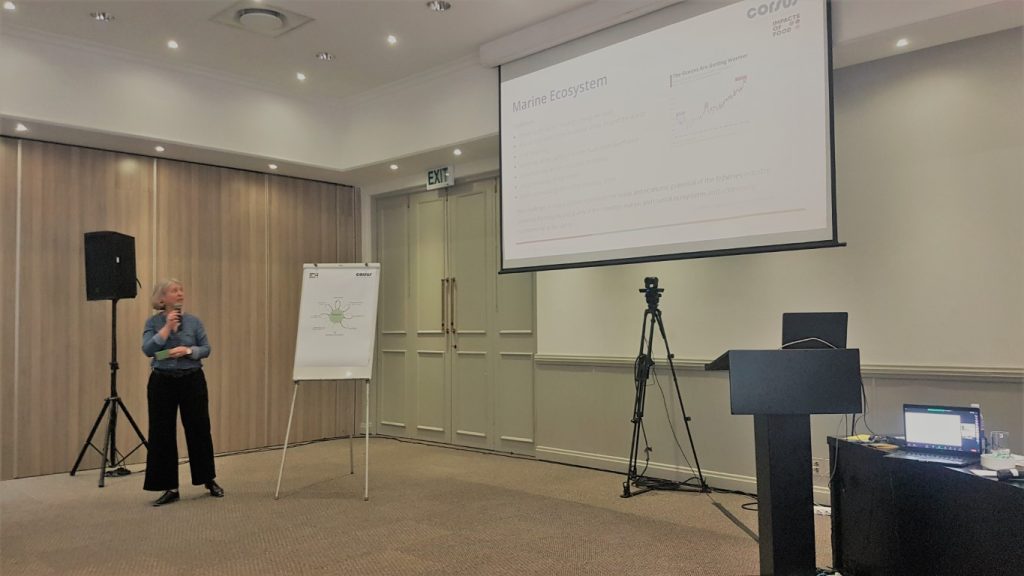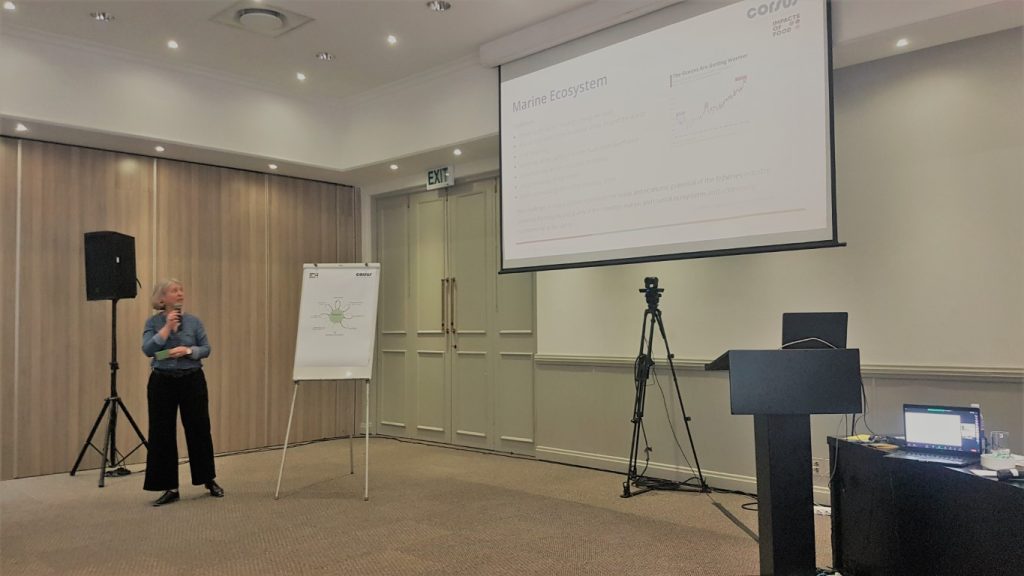As part of the project CLIF – Climate Impacts of Food – corsus held a workshop in Cape Town, South Africa with representatives of wineries and the fishing industry in the Cape region. In the CLIF partner country South Africa, the focus is on environmental impacts in wine production and the fishing of South African deep-sea hake and sardines. The CLIF-Workshop South Africa was moderated by Anke Butscher and Christina Mumm.
Important representatives of the “South African Hake Longline Association (SAHLLA)“ participated in the workshop. Key data of the deep-sea hake fishery and of different fishing methods were discussed. Recently, a holistic environmental management strategy and a more conscious handling of fish as a food resource has been established; management is no longer based on a single species approach. The fishing methods considered – trawling and longline – have a different impact on biodiversity. While inshore trawling has an increased bycatch of a wide variety of fish species, the longline method can result in an unintentional direct bycatch of some endangered species. MSC certification is very important for export, especially for the European market. As deep sea hake is mainly exported, it has no special importance in the domestic market, cheaper deep sea hake is imported from Namiba. The deep sea hake sold inside the South African market is mostly sold to restaurants and supermarkets. However, meat consumption far exceeds fish consumption in South Africa. Finally, the most relevant environmental impacts were discussed. According to the representatives of associations and companies climate change, biodiversity and marine pollution are among the most relevant. Environmental impacts should be assessed by, among others, bycatch rate, fuel consumption, fishing methods and the share of human consumption. All representatives were very interested in the CLIF project and regard it as a chance to found a good basis for the differentiated and valid statements of the environmental impact of the South African deep sea hake fishery.

In the workshop for wine farmers, advantages and disadvantages of another label, possible overvaluation of farms that already operate sustainably, as well as the consideration of locally valuable, but globally small biomes were critically discussed for evaluation in CLIF. It turned out that biodiversity management in viticulture can improve significantly, whereas the opinion of consumers has a great influence. Thus a label does not necessarily create economic benefits. The biodiversity programme by WWF promotes the creation of protected areas and the establishment of corridors of natural vegetation onsite the farmland. The corridors serve as dispersal routes for animals and vegetation, as well as a natural barrier preventing the spread of pests or diseases of crops. The great influence of invasive species in the cultivation and biodiversity management of South African farms was striking.
A joint final discussion with the representatives of the wineries and the fishing industry showed that there were important overlaps but also differences in the consideration of labels and communication. The MSC label is extremely important for the fishing industry in South Africa, while the representatives of the wineries do not experience ecological labels as a working tool in terms of consumer choices. Further labelling of products is perceived as an additional effort, modern information channels are rather needed. Participants agreed that labels should be reliable and implement sustainability so as not to engage in greenwashing. Positive and motivating communication of the environmental impacts of food is essential. Retailers and consumers should be encouraged to choose more sustainable products by positive incentives. All participants were very interested in staying in touch with corsus, to share further informations and receiving information about the progress and results of the project. corsus thanks all participants for a successful exchange and the valuable insights into food production in South Africa.
